Junkyard Gem: 1957 Opel Olympia Rekord P

Starting in the middle 1950s, General Motors made a real effort to sell Americans its vehicles built on the other side of the Atlantic. Pontiac dealers here got the British-built Vauxhall Victor, while Buick dealers sold the Victor’s cousin, the German-built Opel Olympia. We saw a discarded ’58 Victor Super Estate a few years back, and today’s Junkyard Gem showed up recently at the very same car graveyard in northeastern Colorado.
The Olympia name goes way back in Opel history, when the 1936 Berlin Olympic Games inspired its selection. You’d think that the notoriety of the 1936 Olympics as a Nazi Party propaganda festival might have encouraged Opel to change the car’s name after World War II, but Olympia badges went on various Opels (with some pauses) through 1970.
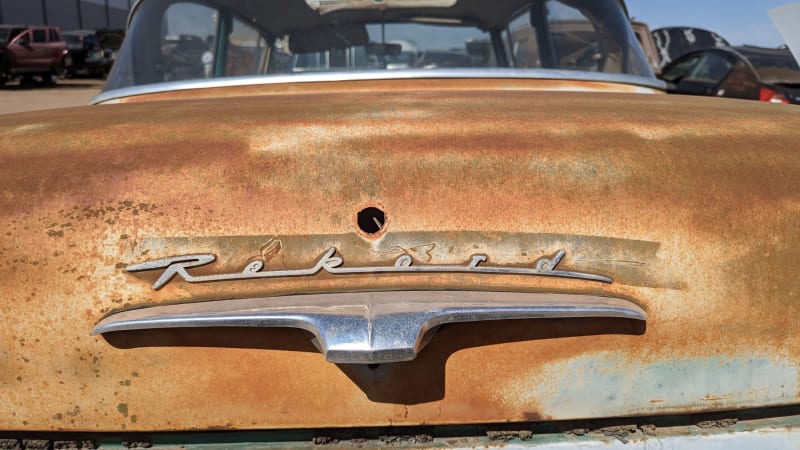
Just as the Malibu name began its life as a trim-level designation for the Chevelle, so did the Rekord name get appended onto the Olympia. The Rekord name eventually took over completely, with the last Rekords coming off the assembly line in 1986.
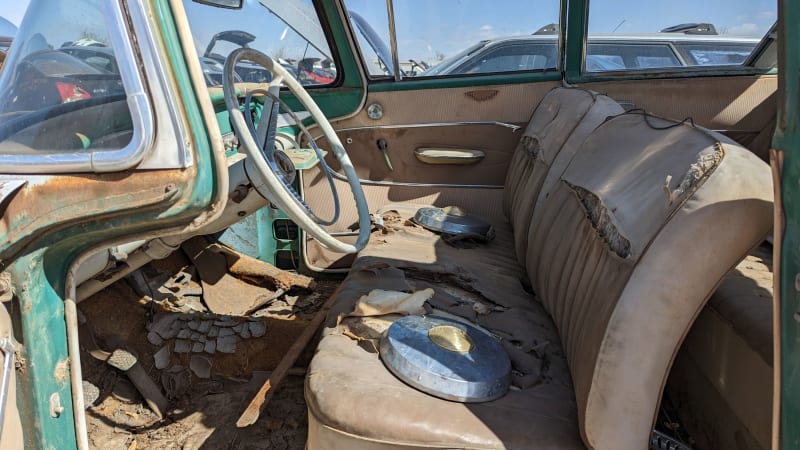
The “P” in this car’s name comes from the panoramic wraparound front and rear glass, a feature inspired by the gorgeous machinery coming from GM’s Detroit car divisions at the time. Starting in 1959, this model became known as just the Opel Rekord.
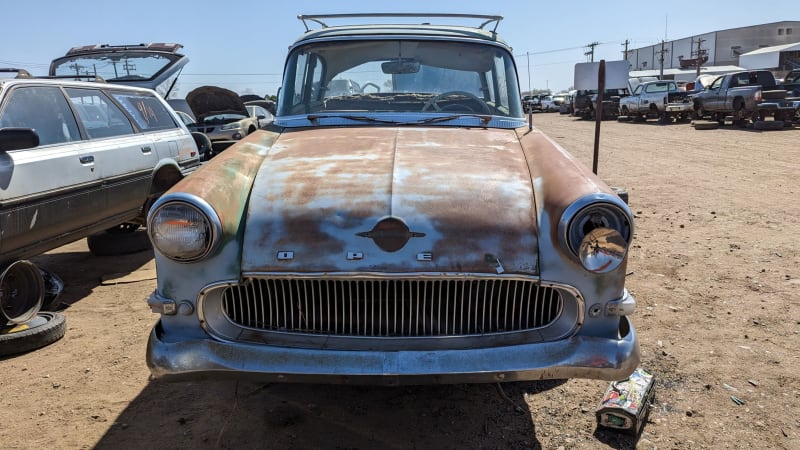
The influence from snouts seen on the 1955 Buick and 1955 Oldsmobile is unmistakable.
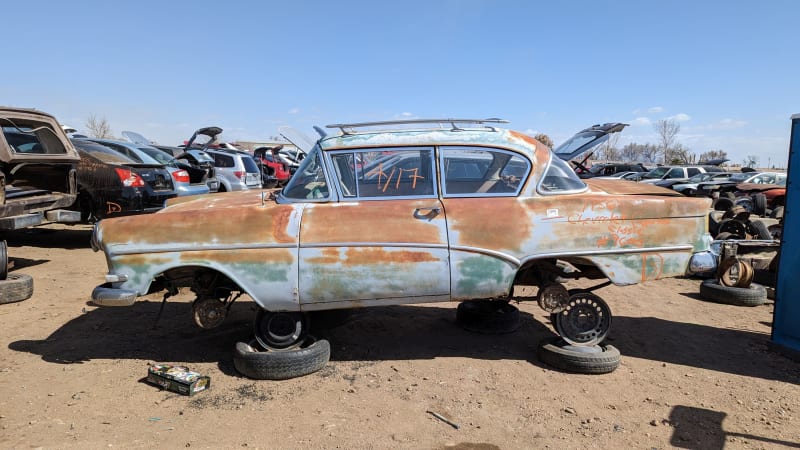
There’s a great deal of 1956 Chevrolet inspiration visible in the side view.
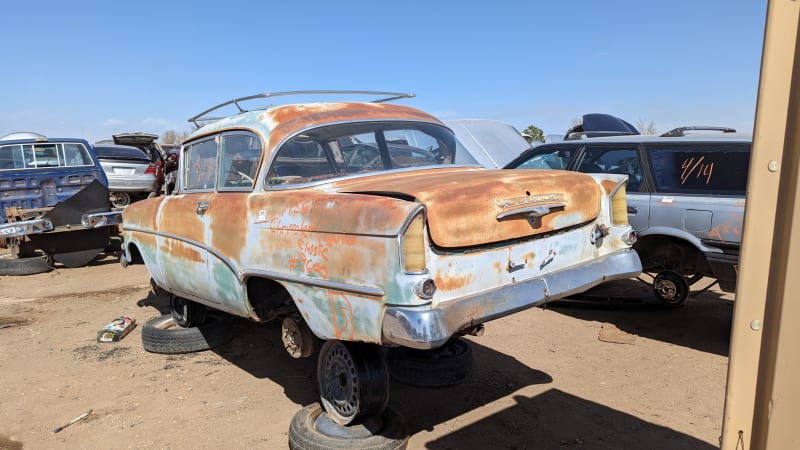
The MSRP for this car in the United States was $1,995, which amounts to $21,818 in 2023 dollars. The similar 1957 Vauxhall Victor sedan cost $1,988 here ($21,741 in today’s money). The cheapest possible 1957 Chevrolet four-door sedan (the One-Fifty with straight-six engine and three-on-the-tree manual transmission) cost $2,048 ($22,397 now). Of course, this Opel would have been in a showroom with far more upscale 1957 Buicks, which started at $2,660 ($29,090 after inflation) for a four-door.
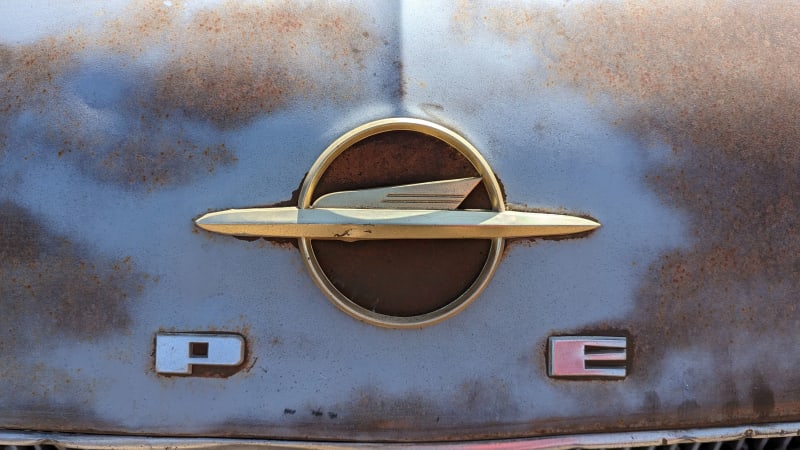
Still, this was a small car that got good fuel economy and was easy to park, yet boasted up-to-the-minute American styling. Buick dealers managed to move some of them here, though Opels became far more commonplace on our roads starting in the late 1960s. Yes, I bought this beautiful hood ornament; it now lives on my garage wall.
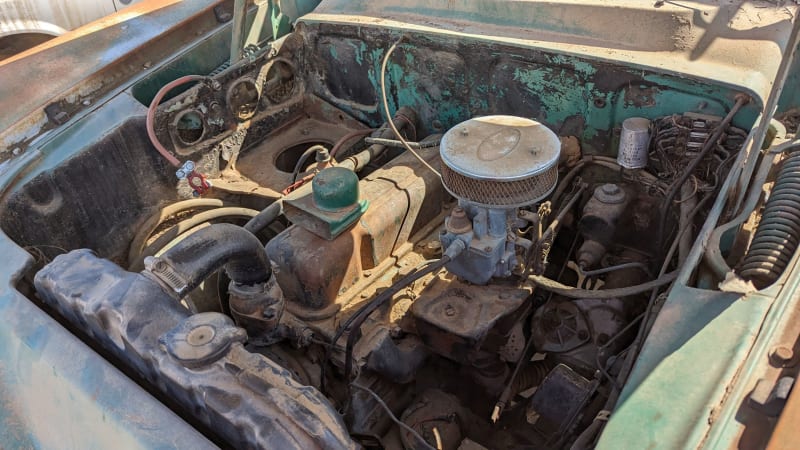
The engine is a 1.5-liter overhead-valve straight-four, rated at 51.3 horsepower and 78.8 pound-feet. The ancestry of this engine goes all the way back to the 1937 Olympia.
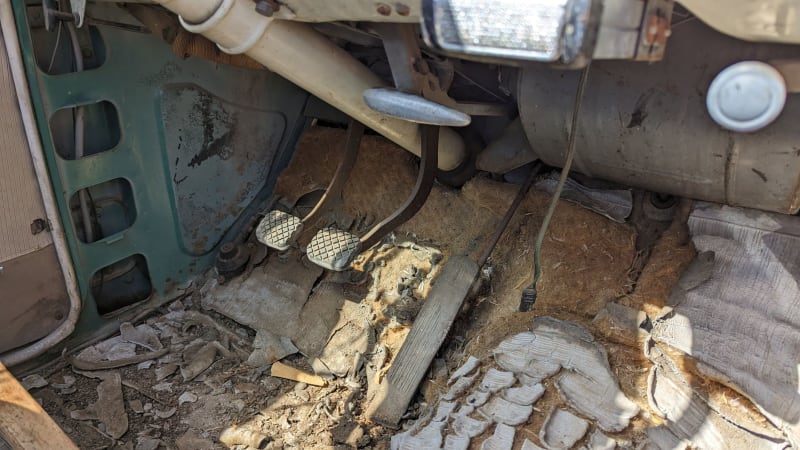
The only transmission available was a three-speed column-shifted manual, which put it firmly in the American automotive mainstream in 1957.
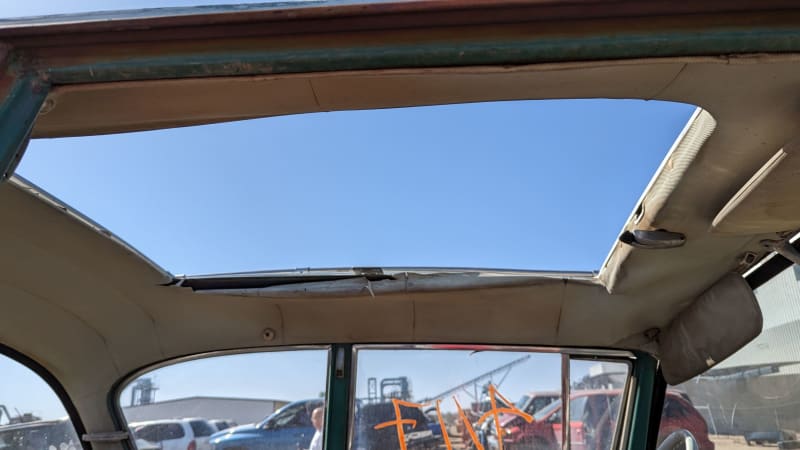
This car had a big fabric-covered sliding sunroof top. I’m not sure if this is a factory option or an aftermarket job. The luggage rack on the roof doesn’t make much sense in combination with the sunroof, but it looks cool.
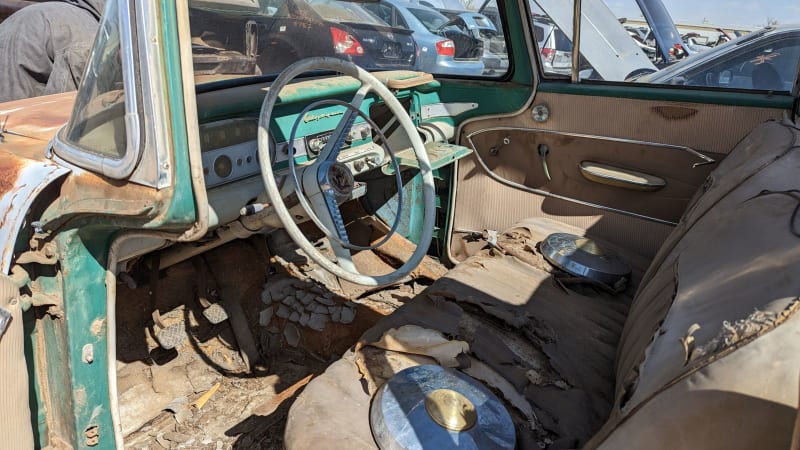
This car sat outdoors in the harsh High Plains climate for many years, and the interior is quite crispy.
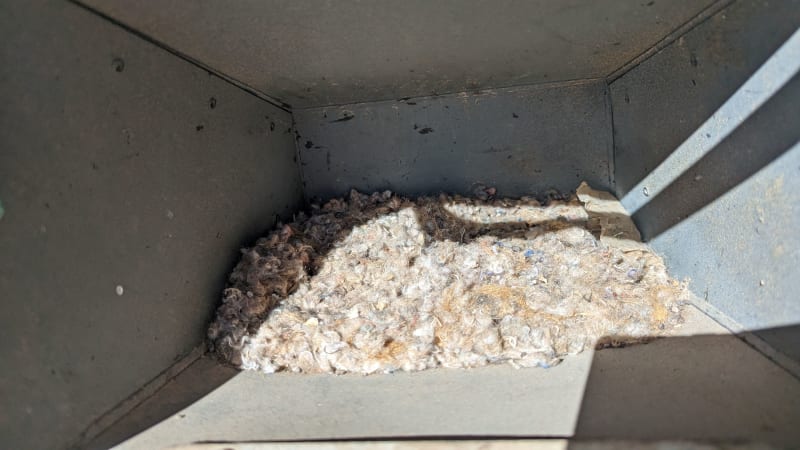
Rodent nesting material and poop are everywhere inside, which means hantavirus is a threat to parts pullers. I’d wear a respirator if I wanted to grab anything serious out of this car’s interior.
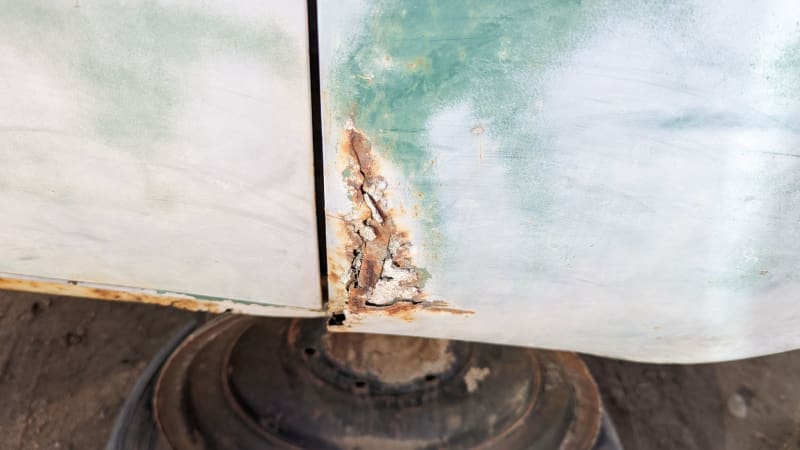
The body is solid, with just a bit of rust from sitting in snow every winter. This car could be put back on the road without much effort, but it’s stuck two-thirds of a continent plus an ocean from the enthusiasts who would appreciate it the most.
Der Zuverlässige.




